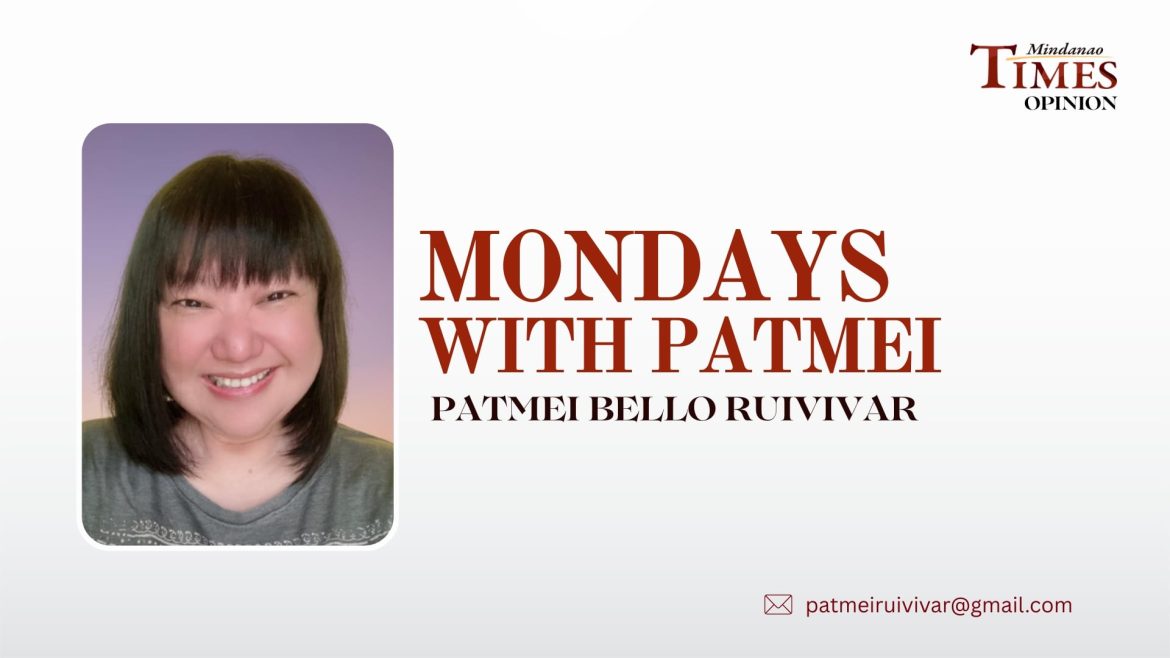PERHAPS President Ferdinand “Bongbong” Marcos, Jr. (PBBM) is just being the chill guy that he is when he declared that calamity is our “new normal” and advised us to just accept it and get used to it because there is nothing we can do about it.
I think most Filipinos already think that way anyway. With the many natural and human-made calamities we have been facing as a nation for a while now, and we are still not out there waging a revolution, I guess we are already resigned to the way things are.
Sure, we have more Filipinos expressing their opinions about various issues on their respective social media platforms now than ever before. But it seems that people are still not agitated enough to seriously organize a movement similar to the breadth and scale of the anti-dictatorship movement we have seen in the 1970s and 1980s.
When I was growing up in the ‘70s and ‘80s, Filipinos did not just agonize, they organized. They did not just gossip, they planned and acted on those plans. It was an analog world, and people could just disappear or die without anyone knowing, yet somehow, Filipinos still managed to connect and collectively act and resist together.
Now I noticed that most Filipinos are okay with just waiting it out till the next elections. Have we become chill or have we just given up?
You would think that in the age of social media and artificial intelligence, it would be easier to connect with people and blast information for collective action. But why aren’t we all coming together now to change things in our country?
Because we are too divided.
I have been reading the writings of Professor Yuval Noah Harari. He is a philosopher, historian, and bestselling author of “Sapiens: A Brief History of Humankind,” among other books. He is considered one of the world’s most influential public intellectuals today.
One of the things I learned from reading Harari is that the superpower of humans is our ability to tell stories. He said that large-scale human cooperation is possible because of shared myths or beliefs. In a divided society, these shared narratives fracture.
In a divided society, people are not just disagreeing on solutions; they are operating in completely different realities. Division is amplified when we demonize each other (us versus them) because it does not only involve disagreement, but active sabotage. Like one faction would rather block the other’s progress than see any forward movement.
Divided societies often have institutional gridlock. The impeachment of Vice President Sara Z. Duterte highlighted just how bad this is for the different branches of our government. Even the House of Representatives and the Senate which belong to the same branch are not on the same page. Resources get wasted on internal conflict instead of solving problems.
We no longer have shared narratives that will help us cooperate with one another. When truth becomes tribal, facts are judged by alignment with group identity, not evidence. Just look at how positions differ on the recent Supreme Court decision on the impeachment of VP Sara — movements fracture into echo chambers, unable to build cross-group coalitions.
The social glue that binds us Filipinos has dissolved and there is an erosion of trust. Neuroscience shows that distrust activates threat responses, shutting down empathy. That’s why we see former allies of Senior Associate Justice Marvic Leonen cancelling him for writing that Supreme Court decision on VP Sara’s impeachment. That’s zero-sum thinking activated.
This constant conflict drains morale and leads to compassion fatigue. Cue PBBM’s hopelessness narrative of nothing will ever change, which becomes self-fulfilling. Now I dread what the message of his State of the Nation Address (SONA) will be.
When our President is encouraging us to accept that calamity is the “new normal,” he is promoting complacency or withdrawal. He is telling us not to resist. And in the face of trauma and overwhelming stress, it triggers our hibernation response. That’s not being chill, that’s checking out.
PBBM may just be sharing his coping strategy when experiencing stress and his intention may be to calm us down. But it is a kind of psychological trap. And division fuels the very complacency it laments.
When Filipinos do not have a shared narrative — a shared container for diversity — our society splinters. Division breaks the machinery of collective action. Repairing it requires rebuilding the shared story of a larger “us.”
We need to find our Filipino story that will move us to cooperate with one another to build a different and better society than what we have now.
Let us study our history and find our story. We will find that we are innovative and creative and we have solved many of the problems we faced throughout history. We will find that we thrive in being part of a community and that the root word of our “bayanihan” (community spirit) is not “bayan” but “bayani.” That means Filipinos are heroes and that heroism is not for individual or personal gain but for the benefit of the whole community. And the goal of every Filipino is to connect with others and see ourselves in our “kapwa.”
The Filipino story is not division but cooperation. If you are promoting the “us versus them” narrative, you are not really Filipino. If you are not being innovative in solving our social problems, you are also not being Filipino. To be a Filipino hero, you have to love your “kapwa” enough to engage in “bayanihan” for genuine social transformation.


